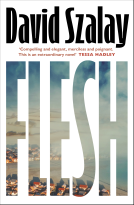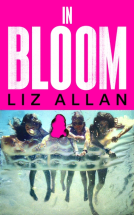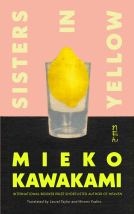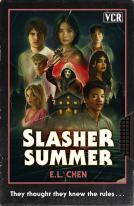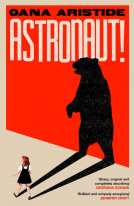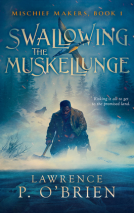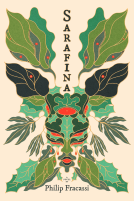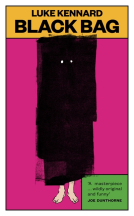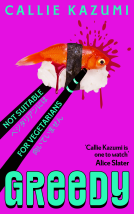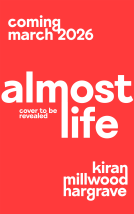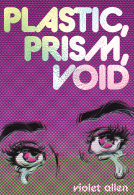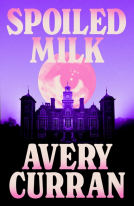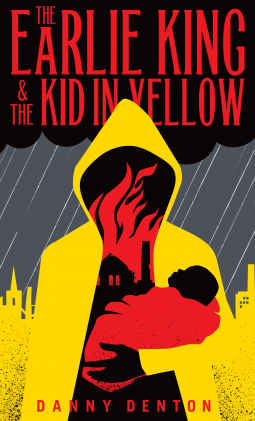
The Earlie King & the Kid in Yellow
by Danny Denton
This title was previously available on NetGalley and is now archived.
Send NetGalley books directly to your Kindle or Kindle app
1
To read on a Kindle or Kindle app, please add kindle@netgalley.com as an approved email address to receive files in your Amazon account. Click here for step-by-step instructions.
2
Also find your Kindle email address within your Amazon account, and enter it here.
Pub Date 15 Mar 2018 | Archive Date 1 Mar 2018
Granta Publications | Granta Books
Talking about this book? Use #TheEarlieKing #NetGalley. More hashtag tips!
Description
Advance Praise
‘What a book. Absolutely marvellous’
Cillian Murphy
‘Just when you think it’s impossible for Ireland to deliver another distinctive voice, another rollicking, playful yet elegant exploration of the deeper myths and traditions that govern life… along comes a tour de force by Danny Denton… one of the best Irish novels to come along in a long time’
David Means, Booker-shortlisted author of Hystopia
‘Stunning… a work of dancing brutality and ferocious tenderness’
Lisa McInerney, Baileys-winning author of The Glorious Heresies
‘A great, imaginative cloudburst. Torrential in theme and execution. A mighty debut’
Mike McCormack, Booker-longlisted author of The Solar Bones
‘Teeming… heart-breaking… blackly funny and brilliant’
Gavin Corbett, author of Green Glowing Skull
‘In any Irish apocalypse the world must end in rain. Danny Denton’s debut is a moody, playful and plaintive ballad from the ancient future’ Colin Barrett, author of Young Skins
Available Editions
| EDITION | Other Format |
| ISBN | 9781783783656 |
| PRICE | CA$21.50 (CAD) |
| PAGES | 368 |
Average rating from 10 members
Featured Reviews
The Earlie King & the Kid in Yellow is a literary stylistic dystopian noir set in a Dublin where it is always raining and the city is a sodden, half-derelict place with a mysterious arsonist and a crime boss called the Earlie King. A boy—the Kid in Yellow—is in trouble and it all relates to a baby and the Earlie King. Others try to fathom what is going on, but soon it is too late and the Kid has taken the babba away, an action that doesn’t look like it will end well.
The novel is a distinctive one that defies simple categorisation: dystopia, gangster noir, a drama about a baby, a stylistic experiment that jumps between lyrical prose and play script. The plot itself is quite simple, but told in a complex way that creates mythology in an atmosphere of unrelenting rain. In some ways, it is another Irish gangster story; in others, it is a new dystopian set amongst religious tradition, distrust, and a lot of water. The Kid’s desperation to care for the baby is heartwarming and their survival becomes the reason to keep turning the page.
Denton has written a fresh novel that blends genre and writing style in a bold way. There is something about the short, sharp scenes, mix of forms, and stylistic and violent future that makes the book in some ways feel similar to good graphic novels, though it is text-based. This is a novel for fans of gangsters and dystopias, a modern noir with a bit of heart.
 Kimberley K, Bookseller
Kimberley K, Bookseller
All I can say is WOW! An incredibly exciting, adventurous, uncategorizable novel. Beautifully written, surprising and compelling. I will be recommending this to everyone. An outstanding debut and unlike anything else I have read.
 Eric A, Reviewer
Eric A, Reviewer
It's amazing when a novel can create such a strong sensory experience and all-encompassing atmosphere within its prose that you feel like you're imaginatively entrenched in this fictional world. There have been few books I've read in recent years that have done this as powerfully as Danny Denton's new novel “The Earlie King & The Kid in Yellow”. He describes a post-apocalyptic Ireland that experiences constant rain so that whole sections of the country begin sinking into the sea, the agricultural industry is destroyed and 92.46 per cent precipitation counts as the “thinnest and firmest in yonks. A bare tremble.” People can only witness the sun in videos, UV booths or sun rooms. One character keeps a slug as a pet. The seas are so polluted fish are poisonous and there are mutant green dolphins. There's an overwhelming sense of dampness and darkness and rot. Many pages of the novel are covered in sketches of rain and occasionally we're given sections from a play script which appears on the page like a water-soaked document. People in Dublin live in fear of a gang lord known as The Earlie King while the police look the other way. Believers flock to the West to worship a miracle statue of the Virgin that has foretold the end of the persistent downpour. Denton powerfully evokes this feeling of a drowning Ireland in order to dramatize a country in a state of crisis. In doing so he produces an immersive story as well as a striking commentary on institutional corruption and the information age.
In a way, it feels like this book has all the elements of a young adult novel. It's a kind-of post-apocalyptic fiction with an adolescent boy hero at its centre who seeks to undermine the oppressive powers that be. One of The Earlie King's underlings, a boy who is around 13 years old and wears a yellow rain jacket, plots to steal the King's granddaughter for reasons which only become apparent over the course of the narrative. But, like Sandra Newman's epic “The Country of Ice Cream Star”, this novel invents its own language rhythms and idioms in a highly sophisticated way. It's formed partly from current Irish dialect and partly from an invented slang to fit with a lingo appropriate to this dilapidated world. So rain jackets that must be worn constantly outside are known as “skins” and a form of television commonly watched is known as the TeleVisio. There are even invented alcoholic beverages and drugs which are frequently referred to. Meanwhile, The Kid in Yellow (whose true name we only discover towards the end) is a kind of repository of literature as he can recite from memory lines from Shakespeare, Goethe, Yates, Michael Hartnett and other poets. Although he doesn’t entirely understand the meaning of their lines, this language lives on through him as do numerous local fables. Storytelling is important throughout the novel, not least of all because (like Margaret Atwood’s “The Handmaid’s Tale”) the entire tale of “The Earlie King & The Kid in Yellow” is being told at some future point through the perspective of a local detective, “the last Irishman” who partially witnessed this catastrophic drama unfold.
Although we don’t see what the world has become in this future point where the primary tale has transformed into myth, it can be presumed that this new nation has moved beyond this gang-run society trapped in a glut of information. One of the themes Denton is preoccupied with is a current general belief that the information age will allow our society to progress to a state of peace and tranquillity. It’s as if we’ve been lulled into believing that the bounty of knowledge we can find through internet searches will allow us to achieve enlightenment. One character named Jeri has a theory that in seeking to know everything we discover that “knowledge didn’t produce an answer as to why we couldn’t find peace. Why we were here.” People find that they are just as confused, fragmented, discontent and alone as ever. Hence the constant rain is a kind of symbol for how clouded our vision remains despite this easy-access to knowledge: “There was so much in the world that was mysterious, all of it held just beyond the rain, or piped just beneath the city’s surfaces.” It becomes apparent that “This country is slowly disappearing. The whole world is falling to pieces. Time is accelerating and cracking apart, and after almost three thousand years of praying none of the organised religions has been able to stop that. None of the sciences either.” So the Kid in Yellow - as well as a vigilante arsonist, a local alcoholic mystic, a chronicler of the gang’s violence and a spectre known as Mister Violence – take steps to trigger a large-scale transformation to move society to a new stage.
Danny Denton is an invigorating and inventive debut author whose voice is a welcome addition to the chorus of new Irish writers making powerful statements about the current state of Ireland. It feels like a new wave in Irish fiction has been felt in full force since the property bubble burst and a financial crisis ensued after 2007. Writers such as Lisa McInerney, Lucy Caldwell, Gavin McCrea, Danielle McLaughlin, Colin Barrett, Gavin Corbett, Kevin Barry and Mike McCormack have creatively addressed different sides of the fallout of this economic downturn in their fiction which ranges from short stories to historical novels to more experimental prose. Now Denton has created a vision of the country which is struggling to find a way forward and seeks to find establish social systems which can represent and support all of its people – not just “the city’s rich or the city’s corrupt”. The original structure of his book frames this drama in such a fascinating way. But, most of all, “The Earlie King & The Kid in Yellow” is also a moving story of a tragic love affair and disillusioned youth.
